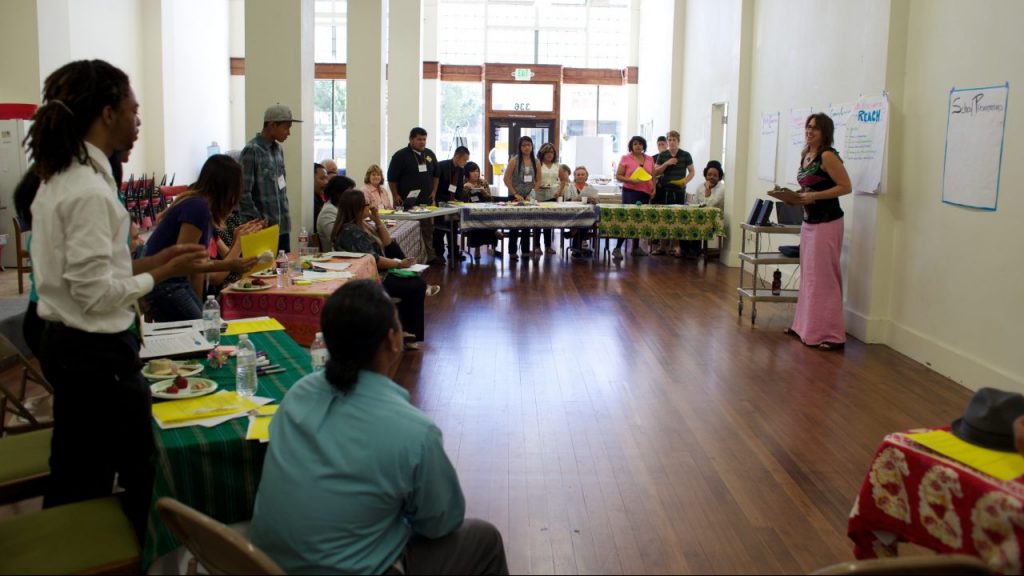European Media Pluralism Monitor rates the Czech Republic

The European Media Pluralism Monitor, a consortium of media scholars and experts, issues an annual report of media pluralism factors in each European country. The 2016 report offered some red flag warnings for the Czech Republic, especially regarding the absence of community broadcasting:
| Availability of media platforms for community media | 75% risk (high) |
| Access to media for the physically challenged people | Negiglible |
| Centralisation of the media system | 79% risk (high) |
The MPM Czech team led by scholar Vaclav Stetka noted: "Community media should be recognised by law in order to help establish the community media sector as a ‘third pillar’ of the Czech media system, particularly given the fact that the Czech Republic remains one of the few EU countries where such a sector does not legally exist."
Is Religious Radio really Community Radio?
A right-wing Catholic radio station broadcast said the recent earthquakes in Italy were "God's punishment" for gay civil unions.

The BBC reported that a Dominican friar on Radio Maria said the quakes, including one in August that killed nearly 300, were caused by sins of man. While the Vatican criticized the broadcast, Radio Maria and it's network of stations across Europe remains a powerful mouthpiece for the Catholic church.
What's your opinion - is this community radio?
Euro Community Media meets in Halle, Germany
Practioners, advocates, and researchers from Germany and across Europe met in Halle to discuss the state of community media, and reinforce links in the sector.

Following the annual conference of German Free Radios (BFR), the AMARC Europe and Community Media Forum Europe assemblies took place as an adjunct to the Radio Revolten arts festival - all capably hosted by the venerable local community Radio Corax.

RadioExpert then travelled to Chemnitz and visited the successful community Radio "T" - led by the "RadioExperts" Daniel Ott and Jorgen Bang.

LPFM reaches deep into USA communities.
The New York Times reports that 2,000 FM stations across the USA have received new licenses from the FCC over the last two years. All are classified as Low Power FM — operating at 100 watts with a broadcast range of roughly five to 15 miles, depending on the surrounding terrain and the proximity of other FM transmissions. About a third are already on the air: non-profit radios serving their communities with locally originating programs.

According to the FCC: “Through the Low Power FM program, the commission’s been able to empower community voices, promote media diversity, and enhance local programming by giving small stations a chance to make a big impact.”
Go here for the full NYT article on the emerging LPFM movement.
Publics, Participants and Policies: Examining Community Broadcasting

The recently completed PhD research project by RadioExpert director Henry Loeser traces the history and explores the foundations of community broadcasting; then asks actual participants "why"? You can view the dissertation and read more about the project here.
How a Public Radio Reporter Learned to Embrace Community Engagement
"We need to have a public dialogue about these social issues, and we need to involve as many people as we can." - Julia Mitric

In 2013, when Sacramento Capital Public Radio reporter Julia Mitric began a project on California’s school dropout crisis, she didn’t know what to expect from her partnership with the station’s community engagement specialist. “I literally had no concept of what it meant to put the words community and engagement together in the same sentence with journalism,” Mitric said.
For the complete story, and additional Q&A with Jesikah Maria Ross, go here.
Celebrating the Mosaic of Community Radio

The Radio Survivor podcast celebrates the mosaic of community radio, featuring Paul Riismandel, Ernesto Aguilar, and Jennifer Waits.
Disrupting Public Media

Disrupting Public Media: Audience First
The heart of KQED’s Transformation
Today’s complex digital media environment requires more sophisticated ways of knowing and connecting with an audience. The explosion of on-demand choice and, for public media, the potential to reach and engage younger but often times more demanding and fickle audiences, have forever changed the rules of audience engagement. Read more here.
Bioneers Radio

Founded in 1990 in Santa Fe, New Mexico by social entrepreneurs Kenny Ausubel and Nina Simons, Bioneers advances the great transformation underway in human civilization by serving as a seed head for game-changing social and scientific vision, knowledge and practices that honor the genius of nature and human ingenuity. Listen to Bioneers Radio here.
Starting a Podcast? Here's How.
The ultimate guide to starting, producing, and promoting a podcast - a step-by-step tutorial by Michael Sacca at Maker.

The guide covers the basics of creating, producing, and promoting your own podcast from how to find the topic that’s right for you, how to decide what format works for your podcast, how to find people to interview, and all the way down to the brass tacks of what recording gear you’ll need, how to edit, and finally, how to distribute and market your podcast so people can find it.
So click here and see everything you need to get started on your own podcast today.
Geo-Location Technology for Community Media?
A new web-based start-up enterprise is combining the traditional community media model of volunteer-based local journalism with the technology of mobile geo-location. The website "Ripple" seeks to commercially conquer the hyper-local challenge that has so far eluded many other "new media" solutions.
“By combining location technology and a contributor community, we’re solving the very real problem of discovering relevant local content,” founder Razmig Hovaghimian said in a press release. “We are creating a hub for city news and stories happening right around you, tapping into the pulse of your city.”
While investors are betting on the commercial potential of the platform, could this also be a breakthrough innovation for community media?
LPFM Profiles: The Voice of Monona
Our new series "LPFM Profiles" takes a look at the incredible variety of new Low Power FM radio stations in the USA. Today we introduce WVMO Radio - owned and operated by the City of Monona, Wisconsin.

The City of Monona worked to apply for and create a low-power FM radio station beginning in 2007. The city wanted to add another avenue for its residents and surrounding community members to voice their opinions, stories, interests, and concerns, while at the same time allowing the city an additional opportunity to communicate with the residents of Monona.
WVMO’s mission is to be a 24 hour voice of the Monona area community, including cultural and social issues. They provide broadcast space for creative expression and community involvement, and produce diverse programming representative of Monona and Madison's East Side community.
Denver Open Media launches Campaign for New Local Radio
Denver Open Media wants your help. They have launched a Kickstarter fundraising campaign to establish a new local radio: DOM 104.7 FM in Denver, Colorado.

The Open Media Foundation has teamed up with Denhac to launch a new addition to Denver Open Media: 104.7 FM, a revolutionary radio station created by, operated by, and dedicated to Denver’s creative community. Exclusively for local artists, bands, comics, podcast authors and more, community members create the content, while listeners vote to give the most prime and repeat air-time to the top-rated content.
To donate, vist their Kickstarter page.
The World's Greatest Radio Station?
Is there a world's greatest radio? Have you listened to WWOZ? They certainly have to be considered, not just for their incredible music, but as a leading institution preserving and promoting the rich, vibrant culture of New Orleans.

How Healthy is Your Community Radio?
Many community radios struggle to survive, whilst overlooking the real keys to their own success. Should these operators reexamine their mission, goals and strategy, they might find the local radio landscape a much more hospitable environment.

Community radios are not just charities, they are social enterprises with a responsibility for effectiveness and sustainability. The way to achieve those ideals is to be an effective organization building strong relationships in your community to develop reliable revenue streams. Read more at the Community Radio Toolkit.
